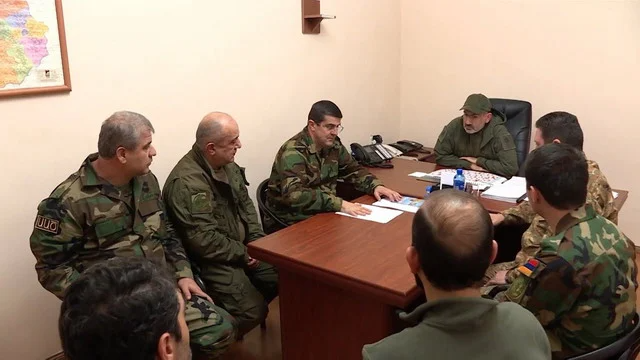The Prime Minister’s latest speech in parliament once again showcased several of his personal characteristics, such as the fact that many of his statements are based on his own assumptions, so to speak, which are logically disputable and not strengthened by evidence. Also, the fact that his ideas and knowledge about the military are at the level of “Iskanders exploding by 10 percent.” We can also say that the Prime Minister’s speeches are flavored with beautiful rhetorical tricks and are quite convincing for certain masses. People on the street who may externally seem like they are adequate try to convince me that Pashinyan is not to blame, and traitorous generals escaped from the positions upon Kocharyan’s orders.
But besides personal and societal issues (and the level of our citizens’ awareness and thought processes), there are also systematical and institutional issues at play. At that is more important. Let’s assume that the government will change. Let’s also hope that the number of brainwashed people will decrease. But if the system remains the same, we cannot have any positive expectations. The entire issue is that the Prime Minister has unlimited authority and zero liability under the current legislation.
Look at what Pashinyan said. He does not accept any responsibility for the success or failure of military operations. The generals are the ones to make decisions. He can only be a “moderator.” In retrospect, he can say that a general “escaped,” and another general organized a poor operation. But I can also write something like that. How do my responsibilities as a journalist differ from the responsibilities of the commander-in-chief?
Or are those lawyers who claim that Pashinyan was not the commander during the war correct despite the fact that he called himself such many times? I have a tendency to think that, in any case, he is the commander. Otherwise, how can he appoint and fire the Chief of the General Staff and his deputy in spite of the president’s objections?
Read also
But in exactly the same way, the Prime Minister can say that in accepting or rejecting this or that plan for the Artsakh settlement process, he is only ‘moderating’ the work of the foreign minister and diplomats. How will the parliament fight against wrong decisions, even if the majority is not made up of ‘backpacks’ but independent, thoughtful people? Or how can the absurd laws adopted by the same National Assembly at the behest of the Prime Minister be stopped even if they presumably do not contradict the Constitution?
It is worth thinking about these problems so that we can avoid this atmosphere of irresponsibility in the future.
Aram Abrahamyan



















































